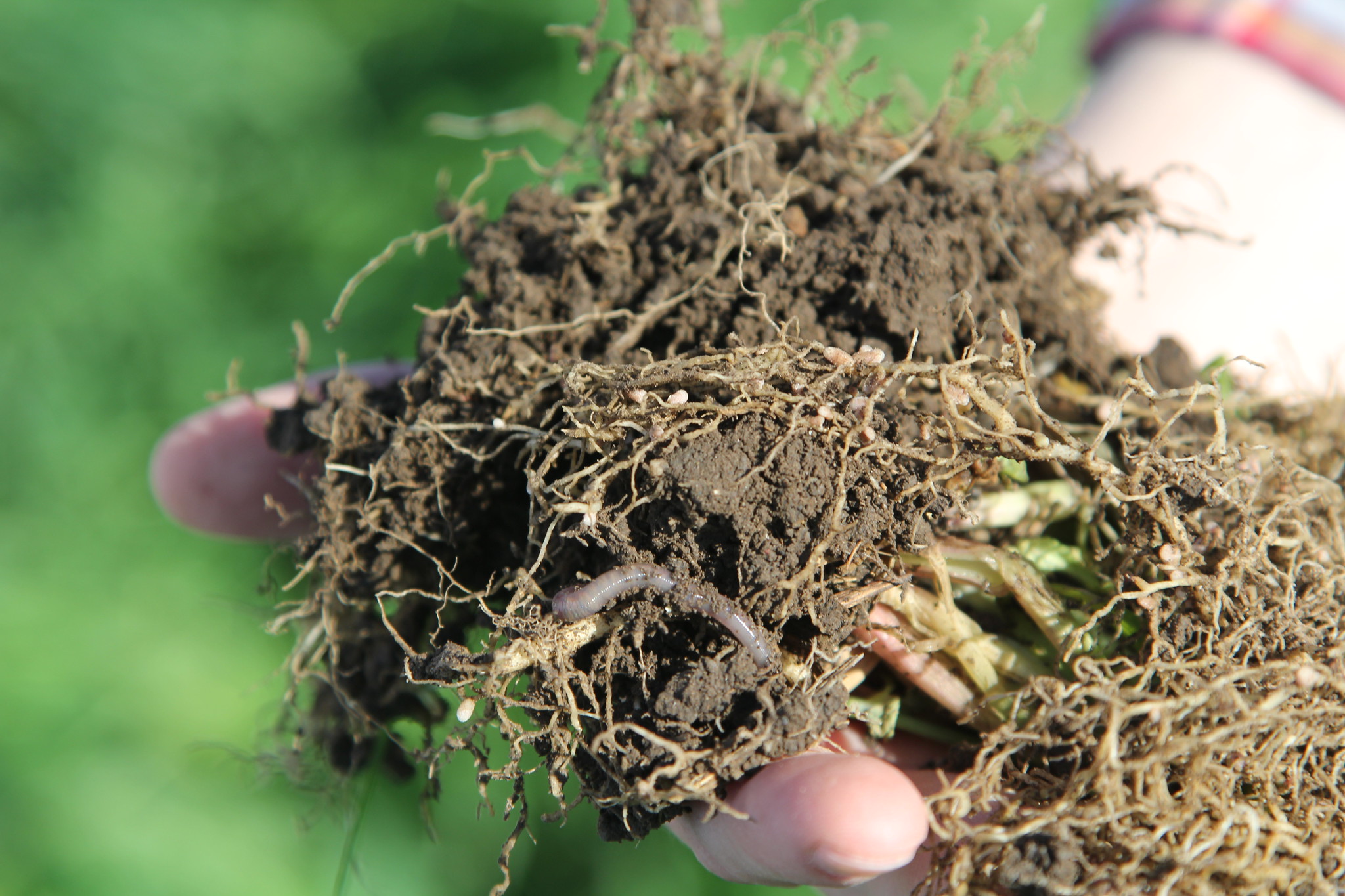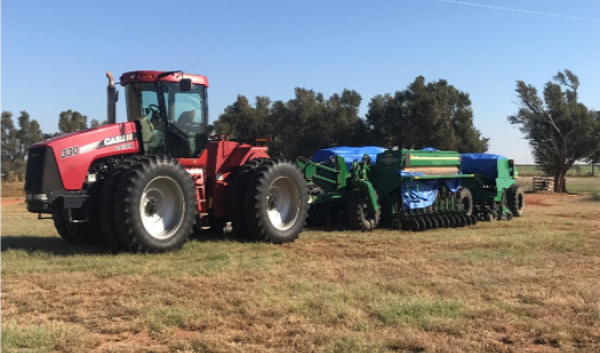Soil
 Soils provide a wide variety of ecosystem services, including regulating carbon through sequestration and providing a structure to support crop plants. Erosion of soil, the primary source for soil particles to leave agricultural fields, may increase in certain areas of the U.S. due to climate change. Some areas of the country will experience less rainfall, causing soils to dry out. Combined with higher winds, this may lead to higher rates of wind erosion. Other areas may experience more intensive rainstorms, which can increase erosion rates by washing out stream banks, for example. Other factors affecting soil erosion that may increase or decrease due to climate change include changing irrigation needs, snowmelt patterns, soil erodibility, conservation practices, and topography.
Soils provide a wide variety of ecosystem services, including regulating carbon through sequestration and providing a structure to support crop plants. Erosion of soil, the primary source for soil particles to leave agricultural fields, may increase in certain areas of the U.S. due to climate change. Some areas of the country will experience less rainfall, causing soils to dry out. Combined with higher winds, this may lead to higher rates of wind erosion. Other areas may experience more intensive rainstorms, which can increase erosion rates by washing out stream banks, for example. Other factors affecting soil erosion that may increase or decrease due to climate change include changing irrigation needs, snowmelt patterns, soil erodibility, conservation practices, and topography.
-
UMES Permeable Reactive Barriers
Heavy rain events are increasing across the Northeast, which can result in more nutrient leaching on farms. At UMES,…
-
Siembra Tres Vidas, Puerto Rico Case Study
Siembra Tres Vidas is a farm on the southern side of the central mountains of Puerto Rico in the town of Aibonito where…
-
Soil Health, Soil Amendments, and Carbon Farming
This soil-focused fact sheet series, which is intended for members of the technical assistance community who advise…
-
Drought Resistant Practices
The USDA Natural Resources Conservation Service (NRCS) offers cost sharing for practices that help farmers increase…
-
NRCS practices can support climate change adaptation
NRCS programs and practices can help landowners achieve their goals while supporting climate adaptation. This series of…
-
Adaptation Workbook Case Study: Pope Hilltop Farm in Loyal, Oklahoma
Steve Pope is the manager and operator of a diverse farming and ranching operation in Kingfisher County, Oklahoma…
-
Saltwater Intrusion: A Growing Threat to Coastal Agriculture
Researchers are showing that large storms are becoming more frequent, high tides are reaching farther inland, and…
-
Midwest U.S. Climate Resiliency Toolkit
Increasing humidity and precipitation and rising extreme temperatures are having negative impacts across the Midwest.…
-
No-Till: From Science to Practice
No-till is not a new concept — in fact, it has been a management practice for several decades, but perhaps gained the…









